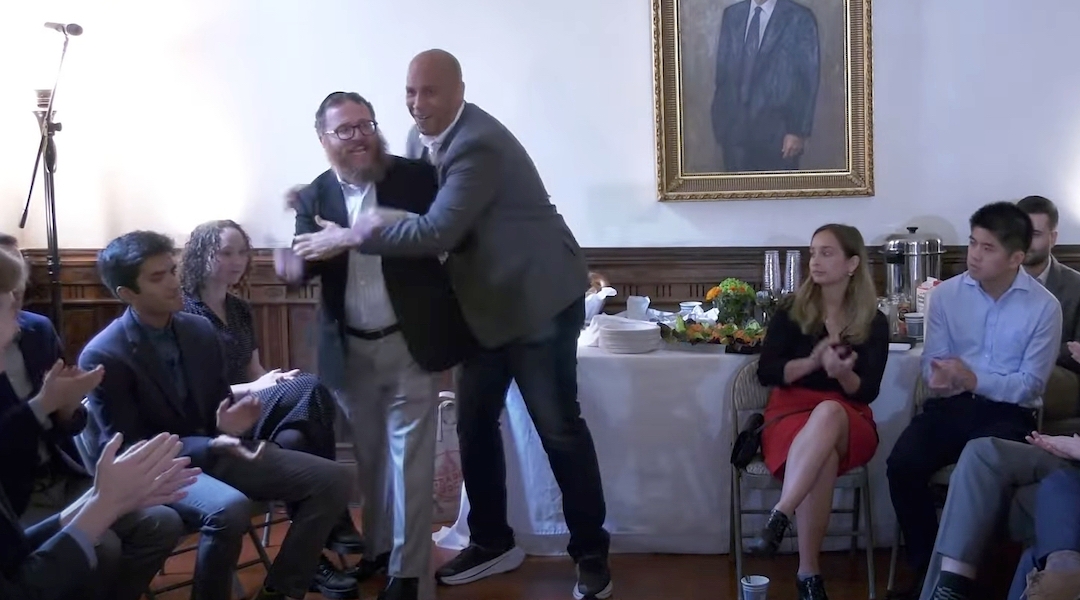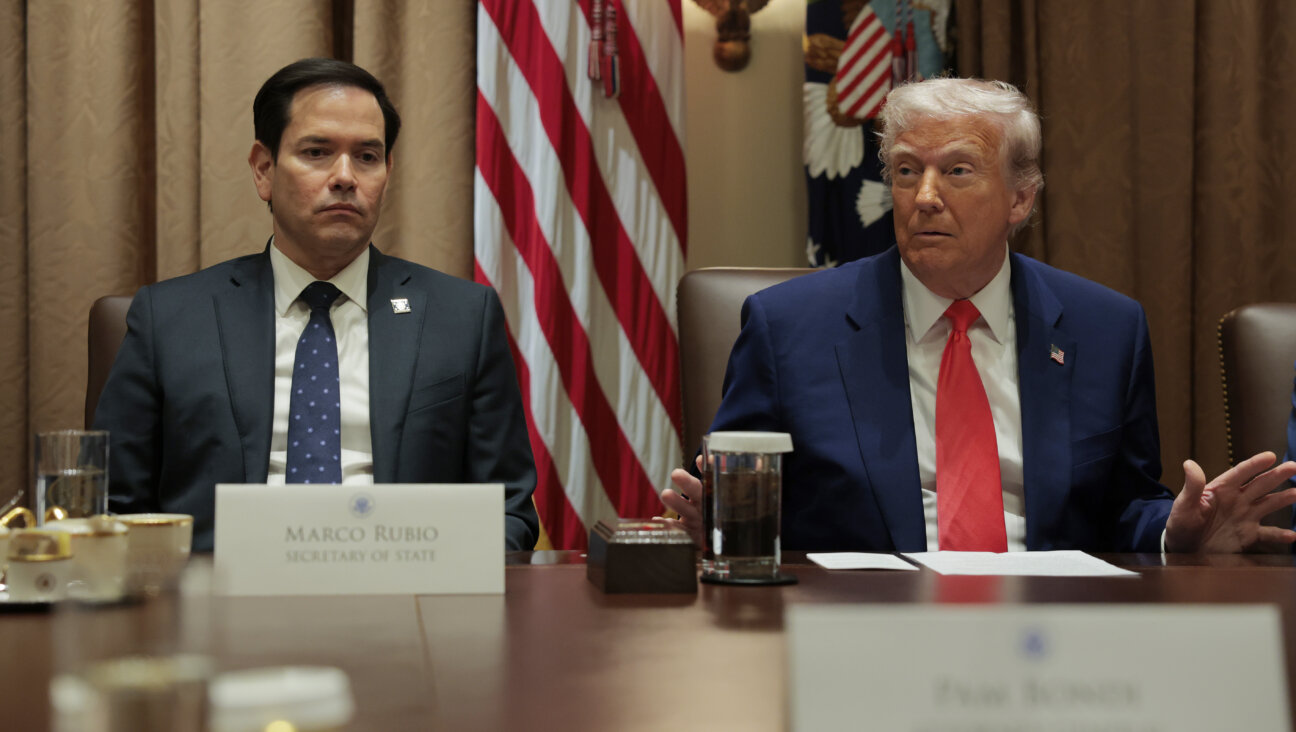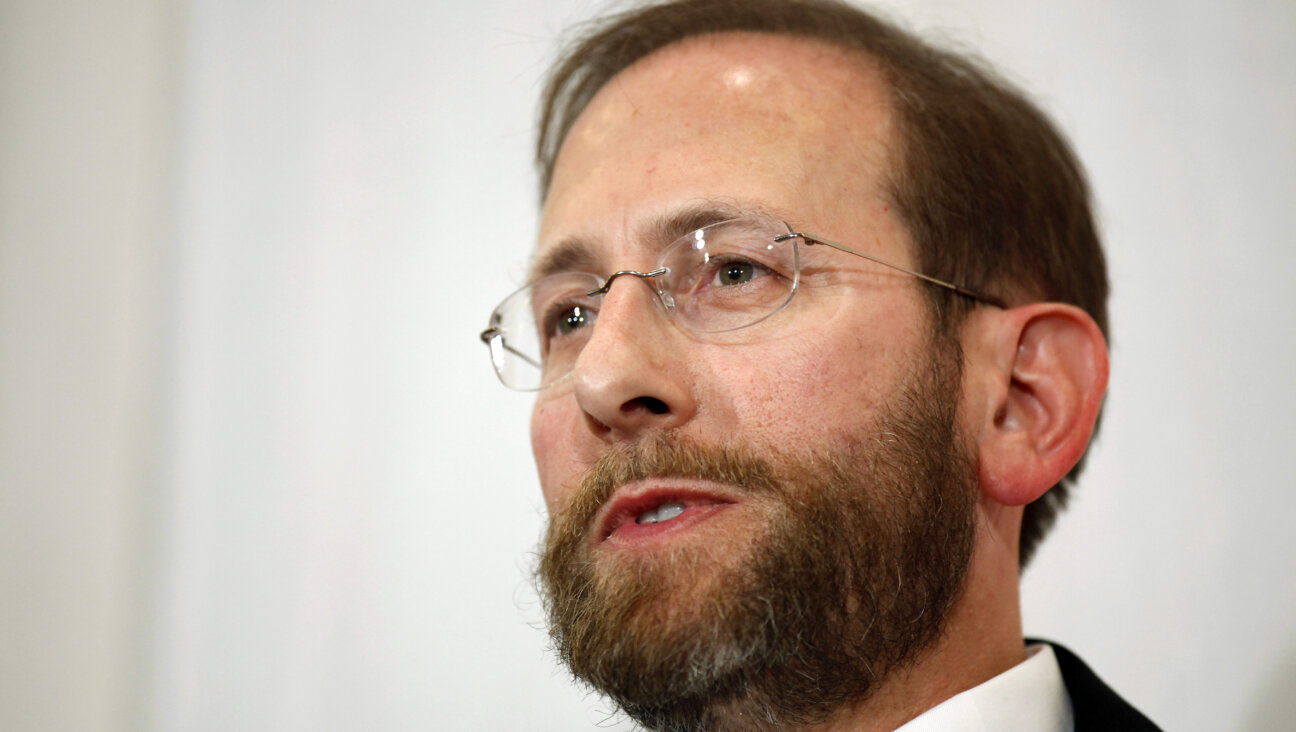French Minister Campaigns in America
With anti-American feelings running high in France, it might seem like an odd move for a French presidential contender to spend a week reaching out to Bush administration officials in Washington and to American Jewish communal officials in New York, and openly proclaiming his friendship with the United States and Israel.
But Gaullist Party leader Nicolas Sarkozy, France’s interior minister, embarked on a trans-Atlantic junket timed for the fifth anniversary of the September 11 attacks, banking on the calculation that bolstering his foreign policy credentials was more important than pleasing the anti-American crowd at home. While he was officially in the United States as interior minister — he met with his counterpart, Homeland Security Secretary Michael Chertoff, and honored New York Police Commissioner Ray Kelly and the city’s firefighters — Sarkozy also held talks with United Nations Secretary General Kofi Annan, Secretary of State Condoleezza Rice and National Security Advisor Stephen Hadley, as well as with two American presidential hopefuls: Arizona Senator John McCain and Illinois Senator Barack Obama. And even President Bush himself drooped by for an impromptu half-hour chat.
In addition, Sarkozy requested an encounter with a group of American Jewish leaders in New York in order to update them on his actions to fight antisemitism and Islamic terrorism, state his support for Israel and take a hard line on Iran. French socialists blasted Sarkozy for using public money to promote his presidential candidacy and to cultivate his ties to the highly unpopular Bush administration.
While they will not say so publicly, officials of the United States, as well as American Jewish leaders, see Sarkozy as their best hope for improved trans-Atlantic relations and closer views on the Middle East.
In recent years, Sarkozy has touted his friendship with America and Israel repeatedly, even though he hews to the French official line by deeming the Iraq War a mistake and supporting a two-state solution. But he has criticized France’s threat to use its veto at the United Nations in the run-up to the Iraq campaign and has given hints of his pro-Israel feelings by making his first visit there after his election in late 2004 to head his party or, more recently, by branding Hezbollah a terrorist organization — a position endorsed by neither France nor the European Union. During his recent visit to Washington, he deviated from the prepared text of a speech he delivered at the French-American Foundation to say “how close I feel to Israel.”
When asked about the potential liability of such positions, Sarkozy points to his high popularity in the polls, where he is currently neck and neck with Socialist front-runner Segolene Royal, as proof that his pro-American stance and his free-market advocacy are no handicap but, in fact, a testament to his countrymen’s longing for real change.
During his meeting with Jewish communal officials in New York on Monday, Sarkozy stressed that riots in destitute suburbs of Paris last year had “no relation with the situation in Israel,” adding that “not all Muslims are antisemites, and not all antisemites are Muslims.”
While he insisted, like all French officials in recent years, that France is not an antisemitic country, Sarkozy added that there is antisemitism in France, an acknowledgment that was seen by his Jewish interlocutors as a welcome nuance.
He did not stray from the official French position on the Palestinian issue, and warned that Israel had lost the “image war” in Lebanon, but Sarkozy took an uncompromising stance on the need to prevent Iran from manufacturing nuclear weapons and said that it would be his top foreign policy priority if elected next May.
French and European officials have stressed over and over that either a diplomatic solution or U.N. sanctions were the only way of dealing with Iran’s nuclear ambitions. Sarkozy, however, stuck more closely to America’s position by stating that all options must remain open, a phrase often used by Bush himself and commonly understood to mean possible military action. Sarkozy said French authorities estimate that Iran will have nuclear weapons within two to three years, according to participants in the briefing with Jewish groups. “The only response is firmness,” Sarkozy said. “We must keep all options open, and not tie our hands to one single strategy. We should not give Iran advance warning about what the democratic world might do.”
Among those attending Monday’s meeting were the chairman of the Conference of Presidents of Major American Jewish Organizations, Harold Tanner; the chairman of the Policy Council of the World Jewish Congress, Rabbi Israel Singer; the president of the American Jewish Congress, Jack Rosen; the executive vice president of B’nai B’rith International, Dan Mariaschin, and officials from the American Jewish Committee and from the Anti-Defamation League.
“We came away feeling he has strong convictions to combat antisemitism with a firm hand, and we also got an opportunity to hear his worldview,” Mariaschin said. “And we feel there is a connectedness between our concerns and his priorities, be it on terrorism or the Middle East.”
The one position with which Sarkozy took issue is the support of Jewish organizations for Turkey’s entry into the European Union, which he opposes, like the majority of the French, according to opinion polls. Just before coming to the United States, Sarkozy called for the suspension of E.U. membership talks with Turkey unless Ankara recognizes Greek Cyprus (Turkey only acknowledges the northern part of the Mediterranean island). The membership talks between the E.U. and Turkey have stalled recently; Ankara is accusing the Europeans of foot dragging in order to cater to the growing anti-Muslim sentiment on the continent, and the Europeans are blaming Turkey for its refusal to budge on Cyprus.
Sarkozy pointedly told Jewish leaders that they could not worry about the prospects of integrating a growing Muslim population into France and at the same time advocate the integration of 75 million Muslims into the E.U.
The Frenchman is not the only presidential hopeful catering to the American Jewish community this month. Brazilian president Luiz Onacio da Silva, known as “Lula,” is running for reelection next month. He will be honored September 29 by the Appeal of Conscience Foundation at its annual dinner. The foundation, headed by Rabbi Arthur Schneier, promotes religious freedom and human rights around the world through interfaith dialogue.
The Forward is free to read, but it isn’t free to produce

I hope you appreciated this article. Before you go, I’d like to ask you to please support the Forward.
Now more than ever, American Jews need independent news they can trust, with reporting driven by truth, not ideology. We serve you, not any ideological agenda.
At a time when other newsrooms are closing or cutting back, the Forward has removed its paywall and invested additional resources to report on the ground from Israel and around the U.S. on the impact of the war, rising antisemitism and polarized discourse.
This is a great time to support independent Jewish journalism you rely on. Make a gift today!
— Rachel Fishman Feddersen, Publisher and CEO
Support our mission to tell the Jewish story fully and fairly.
Most Popular
- 1

Culture Trump wants to honor Hannah Arendt in a ‘Garden of American Heroes.’ Is this a joke?
- 2

Opinion The dangerous Nazi legend behind Trump’s ruthless grab for power
- 3

Fast Forward The invitation said, ‘No Jews.’ The response from campus officials, at least, was real.
- 4

Opinion A Holocaust perpetrator was just celebrated on US soil. I think I know why no one objected.
In Case You Missed It
-
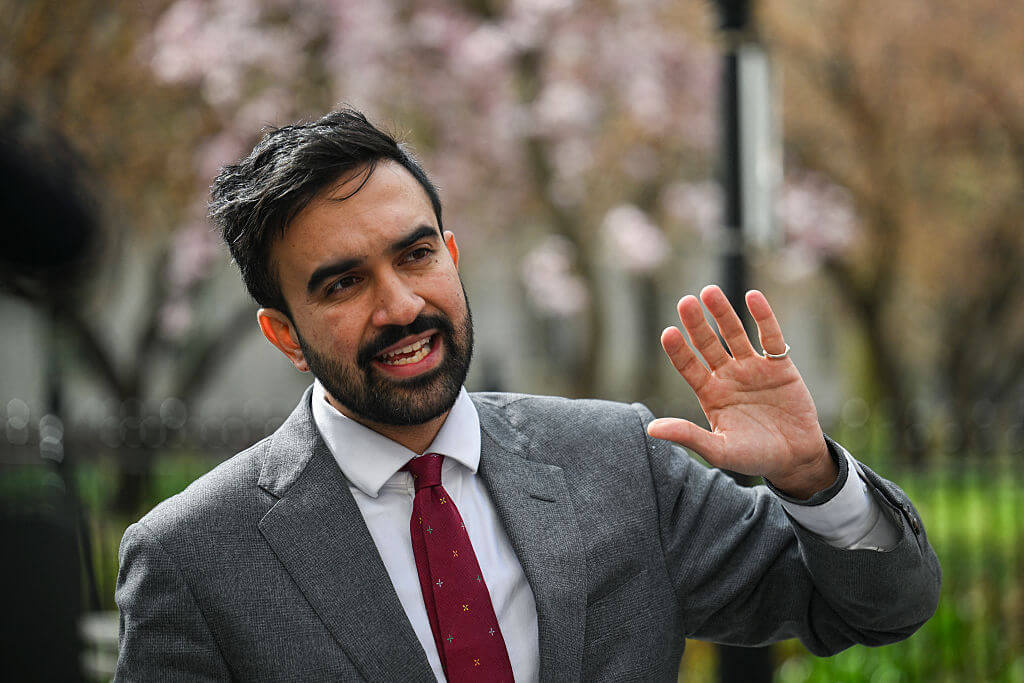
News Why Zohran Mamdani, an Israel critic running second to Cuomo in NYC mayoral race, believes he’ll win over Jewish voters
-
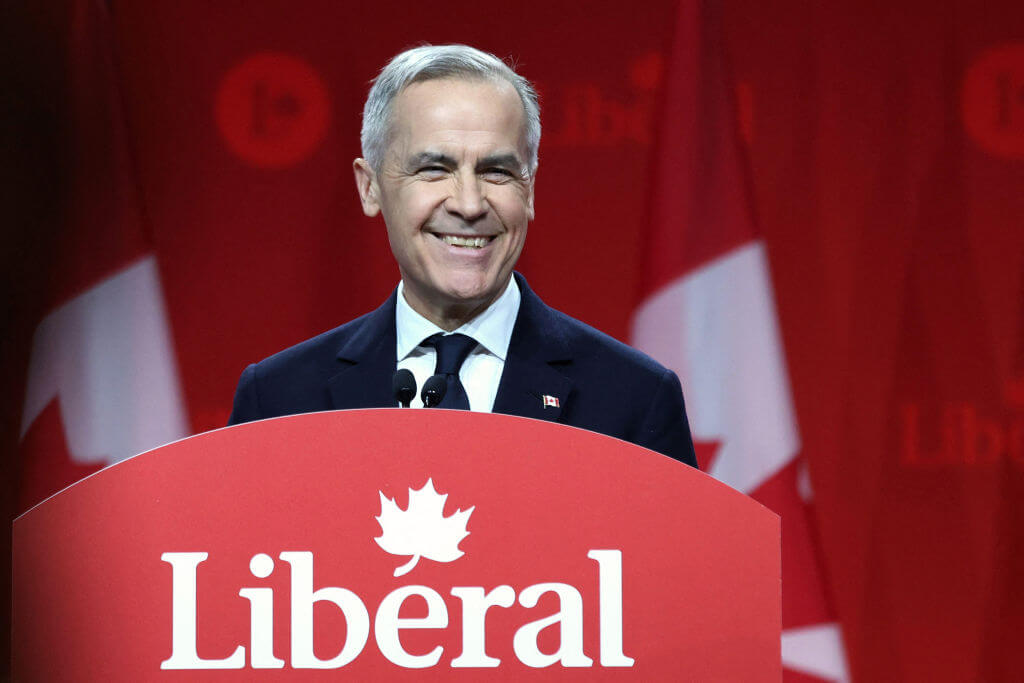
Fast Forward What the election of Mark Carney would mean for Canadian Jews and Israel
-
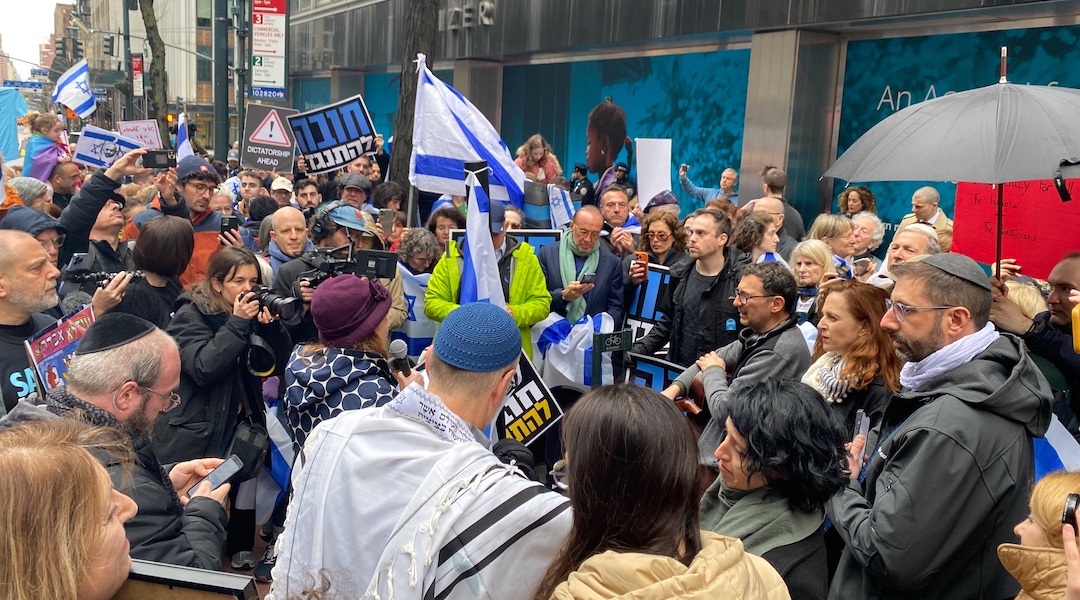
Fast Forward Over 500 rabbis sign letter rejecting Trump’s antisemitism agenda
-
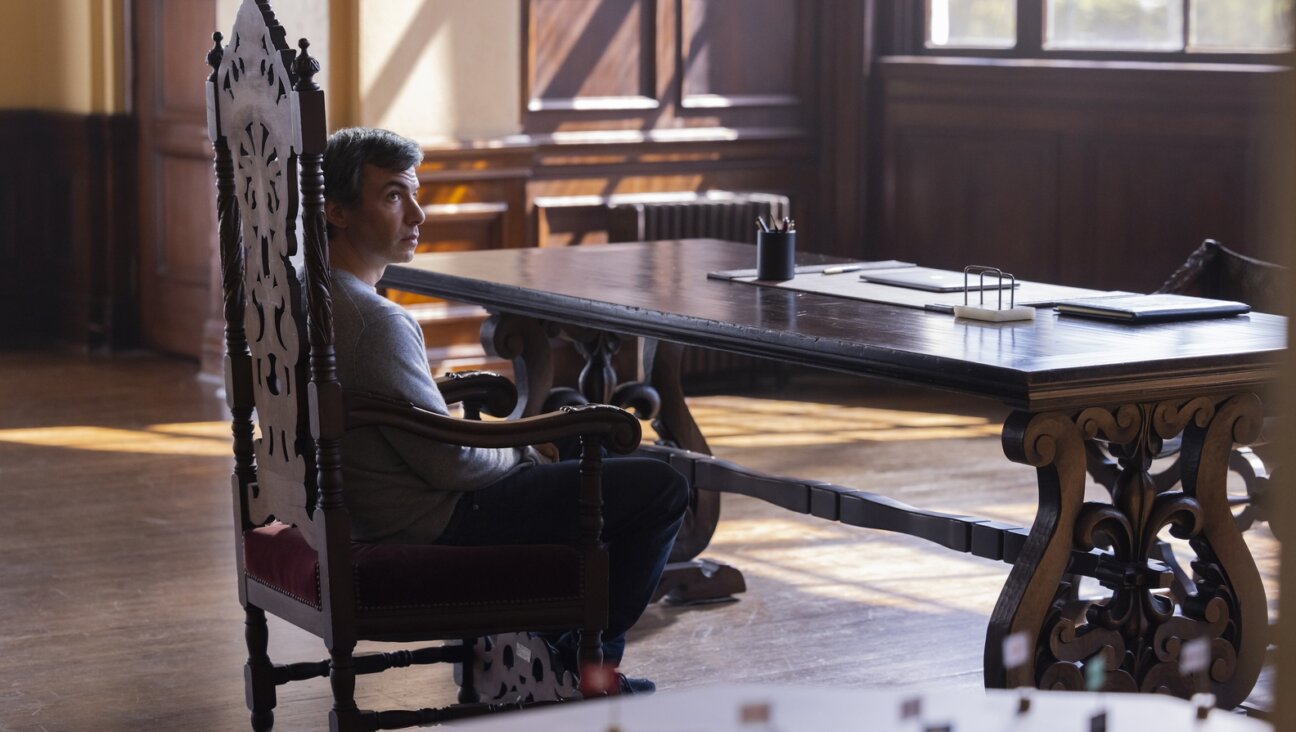
Film & TV In ‘The Rehearsal,’ Nathan Fielder fights the removal of his Holocaust fashion episode
-
Shop the Forward Store
100% of profits support our journalism
Republish This Story
Please read before republishing
We’re happy to make this story available to republish for free, unless it originated with JTA, Haaretz or another publication (as indicated on the article) and as long as you follow our guidelines.
You must comply with the following:
- Credit the Forward
- Retain our pixel
- Preserve our canonical link in Google search
- Add a noindex tag in Google search
See our full guidelines for more information, and this guide for detail about canonical URLs.
To republish, copy the HTML by clicking on the yellow button to the right; it includes our tracking pixel, all paragraph styles and hyperlinks, the author byline and credit to the Forward. It does not include images; to avoid copyright violations, you must add them manually, following our guidelines. Please email us at [email protected], subject line “republish,” with any questions or to let us know what stories you’re picking up.







